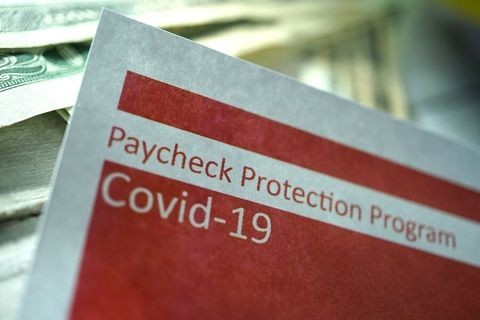Antitrust: A New Frontier: Algorithmic Pricing Class Actions
Publication | 01.15.25
On a very basic level, generative artificial intelligence (Gen AI) takes in vast amounts of information, analyzes it, and provides results. It uses mathematical algorithms to find patterns in the information and exploits those patterns to achieve the user’s goal.
Considering AI’s boundless potential to do creative things with information, it seems inevitable that it would also generate litigation. That’s precisely what’s happening now in the field of antitrust. “We’re at the beginning of what’s likely to be a long-term trend,” says Jordan Ludwig, a partner in Crowell & Moring’s Antitrust and Competition Practice. “AI-based antitrust class actions appear to be just getting started. It’s cutting-edge legal territory, with only a few cases filed so far and even fewer decisions.”

AI-based antitrust class actions appear to be just getting started. It’s cutting-edge legal territory, with only a few cases filed so far and even fewer decisions.
— Jordan Ludwig
Focus On Algorithmic Pricing
Algorithmic pricing is an area of antitrust litigation that’s attracting a great deal of interest. Plaintiffs have alleged that defendants use algorithms to fix prices, share information, or both. While class actions have been brought in a variety of industries, some of the earliest cases thus far have targeted hotels in Las Vegas and Atlantic City.
The Las Vegas case (Gibson v. Cendyn Group) was filed under the Sherman Antitrust Act in the District of Nevada in January 2023. Plaintiffs claimed that several hotel operators on the Las Vegas Strip colluded to use the same algorithmic pricing software in a “hub-and-spoke” conspiracy to keep their room rates high. The court rejected the plaintiffs’ complaint multiple times, concluding that the plaintiffs failed to allege any conspiracy among the hotel defendants. The court acknowledged the plaintiffs’ case was a “relatively novel antitrust theory premised on algorithmic pricing going in search of factual allegations that could support it.”
This case is notable in part because it is the first algorithmic pricing case to reach the appellate courts—a fact that has attracted attention. In September 2024, plaintiffs asked the 9th Circuit to reverse the district court’s dismissal of their case. The Antitrust Division of the U.S. Department of Justice, as well as several interest groups, filed an amicus brief in support of plaintiffs.
The Atlantic City case (Cornish-Adebiyi v. Caesars Entertainment) was filed a few months after Gibson in the District of New Jersey. As with Gibson, plaintiffs alleged that the defendants used a common software provider—the same one as in Gibson—to further a conspiracy to control the pricing of their hotel rooms. These plaintiffs suffered the same defeat as the plaintiffs in Gibson: All of their claims were dismissed with prejudice.
The plaintiffs in Cornish-Adebiyi appealed the district court’s dismissal to the 3rd Circuit. So there are now two pending appeals in two separate circuits concerning cases with very similar factual backgrounds. Antitrust lawyers are closely watching both cases for guidance on how the appellate courts will treat these so-called “algorithmic price-fixing” cases.
Potential Defendants Should Be Proactive
Ludwig believes, “The ideal outcome for potential defendants is to avoid litigation in the first place. Of course, that is not always possible, but there are several steps they can take to reduce the likelihood of class actions.”
AI has many benefits and can be pro-competitive. But given the current regulatory and litigation climate, the first step to managing risk is to take a cautious approach with AI. It’s vital to understand how both algorithms work and the inputs that go into them. Companies should also avoid communicating with competitors about pricing and the tools used to set prices.
In addition, Ludwig says, companies might consider providing antitrust training to less traditional audiences, including software developers. If a company is developing an AI tool in-house, it may become increasingly important for software developers to understand what may pose an antitrust risk.
To read more from Litigation Forecast 2025: What Corporate Counsel Need to Know for the Coming Year, visit here.
Contacts
Insights
Publication | 03.31.25
Health System Settles FCA Case Over PPP Loan 03.31.25 Report on Medicare Compliance
Publication | 03.24.25


